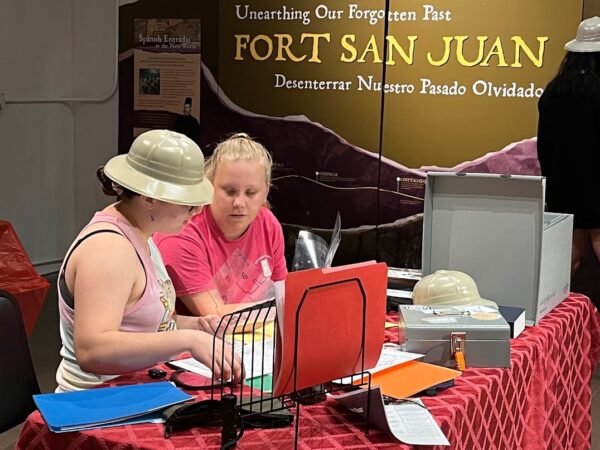- About
- Future Students
- Academics
Academic Resources
- Current Students
My MHU ToolsAdult & Graduate Studies
- Athletics
- Alumni / Give
Mars Hill University Receives NEH Grant to Plan New Active Learning Center
May 2, 2022
 Mars Hill University will use a nearly-$35,000 federal grant to begin planning for an expansion of the current Rural Heritage Museum into an active learning center to better connect students to the Southern Appalachian region in which the university is located. The new Appalachian HEART Hub will be located in the historic Montague Hall, which has housed the museum since 1979. HEART stands for Humanities Education Across disciplines in the Region Together.
Mars Hill University will use a nearly-$35,000 federal grant to begin planning for an expansion of the current Rural Heritage Museum into an active learning center to better connect students to the Southern Appalachian region in which the university is located. The new Appalachian HEART Hub will be located in the historic Montague Hall, which has housed the museum since 1979. HEART stands for Humanities Education Across disciplines in the Region Together.
“A group of Mars Hill faculty and staff members came together to run the museum following staffing changes, but we want to do more than maintain the status quo,” said Karen Paar, Ph.D., university archivist and director of the project. “We have a vision for what this space could become for interdisciplinary teaching and learning and for greater community involvement.”
The grant, totaling $34,932, is one of 18 Humanities Connections Planning grants awarded nationwide that the National Endowment for the Humanities announced in April. Grant funds will enable the university to undertake a year-long planning process for the HEART Hub.
“The NEH Humanities Connections Planning Grant is crucial to making this vision come to fruition,” said Paar, who also is director of the university’s Southern Appalachian Archives. “It provides funds for us to learn about successful interactive learning spaces at other institutions and also for our faculty and staff to receive training to offer such instruction here.”
With its location in Southern Appalachia, Mars Hill is ideally suited to studying important issues such as racial justice, economic inequity, and sustainability. The university hopes the HEART Hub will lead to better connections between students and the local community. By centering on students and making their voices heard through exhibitions and programs, the HEART Hub should help them better understand the region and find their places within it.
“We believe that the future Appalachian HEART Hub will impact student success by fostering active engagement in and curiosity about our region and by fostering active participation in campus life itself,” said associate director Leila Weinstein, coordinator of the Ramsey Center for Appalachian Studies. “Student collaborators will work with faculty to help shape the project during the planning stage and students will contribute to and create exhibitions and programs during the implementation stage of the project.”
The university’s grant application noted the importance of addressing a disconnect many students feel with the region. “Many students come here from elsewhere: Of the incoming freshman class of 2021, 9% are international students, 34% are from out of state, and 32% are from other regions of North Carolina. For some MHU students, the region feels quite foreign; for others, it is colored by media stereotypes.”
The HEART Hub will contribute to a more inclusive campus culture and will build a sense of community and improve co-curricular engagement, student retention, graduation rates, and overall success. The active study of the area and the hands-on creation of tangible products, such as museum exhibitions, can help connect students to the campus and the place.
The HEART Hub will continue to offer museum visits for MHU and local K-12 schools, and will serve as a vibrant, inclusive, and inviting place where the campus and the community can come together.
“We will hire a consultant to reimagine Montague Hall to continue its museum functions while adding features that increase student engagement and involvement,” Paar said. “At the end of this grant, we will have sharpened our vision for the museum so we can raise funds to implement these plans. We are excited to begin!”
The grant application was the culmination of a cross-disciplinary effort led by Mars Hill University’s Ramsey Center for Appalachian Studies; the Southern Appalachian Archives; Teaching with Primary Sources; and the interdisciplinary studies, teacher education, and art programs, with input from other disciplines ranging from business and health and human performance to biology and history.